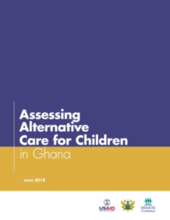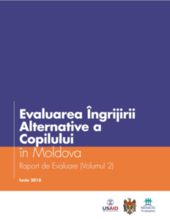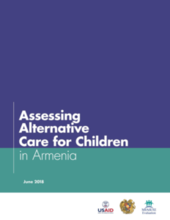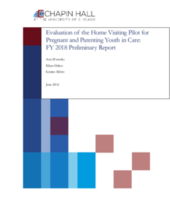Displaying 1211 - 1220 of 2221
This report, in the Moldovan lanugage, presents the findings of an assessment workshop aimed at informing action planning to address priority needs identified in alternative care for children in Moldova.
This report presents the findings of an assessment of Ghana's national alternative care system aimed at supporting the government and its partners in continuing to advance alternative care.
his Note explores how the standard practice of removing a child without prior judicial authorization has quietly contributed to a civil rights crisis by enabling racial bias to go unchecked in the placement decision-making process.
En este documento se presentan los principales resultados de una investigación se propuso conocer las dinámicas y trayectorias de transición del sistema de cuidados alternativos a la autonomía de los y las jóvenes que vivieron en instituciones de cuidado residencial de la Ciudad de Buenos Aires, Argentina.
This paper identifies some of the key debates about the evidence from outcomes for children placed in foster care, the challenging issues in the design of the system, how it operates and what the outcomes for children look like.
This report, in the Moldovan langauge, presents the findings of an assessment workshop aimed at informing action planning to address priority needs identified in alternative care for children in Moldova.
This report presents the findings of an assessment workshop aimed at informing action planning to address priority needs identified in alternative care for children in Moldova.
This study had two purposes; first to examine mental health disparities among LGBTQ youth and their heterosexual peers who are involved in the child welfare system, and second to observe the effectiveness of systems of care with youth in child welfare and if any differences exist between LGBTQ youth and heterosexual youth.
This report presents the findings of an assessment workshop aimed at bringing together key stakeholders—decision makers, policy developers, service providers, civil society representatives, and donors—to assess and identify the main care reform areas in Armenia in which action is needed.
This report presents preliminary results from an evaluation of the Home Visiting Pilot Program, serving pregnant or parenting youth in foster care.







